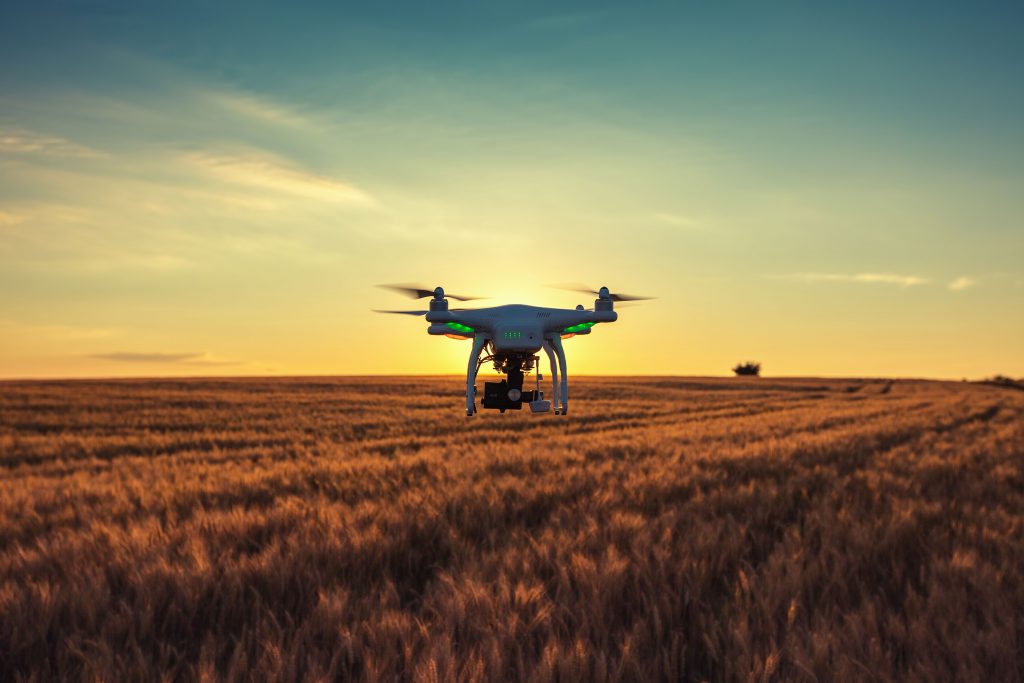New study finds an appetite for Future Flight technologies if used for public good
A new study has found that people are likely to support new forms of aviation technologies such as drones and electric vertical take-off and landing vehicles (eVTOLs) if they serve the public good.

New research led by the University of Birmingham has found that the public are generally supportive of new aviation technologies so long as they deliver benefits for the public and address issues such as socio-economic exclusion, accountability and regulation, and cybersecurity and privacy, as well as impacts on biodiversity and wildlife.
Future Flight for public benefits
The research, funded by UK Research and Innovation’s Future Flight Challenge, delivered by Innovate UK and the Economic and Social Research Council (ESRC), consisted of a UK public dialogue and a nationwide survey. The comprehensive research considered scenarios for Future Flight services such as non-passenger carrying drones, eVTOLs, and electric or hydrogen regional air mobility. UK citizens involved in the dialogue deliberated for over four months to help develop a framework to support the roll-out of Future Flight technologies and services, based around 14 high-level principles and recommendations.
These findings were supported by a nationally representative survey showing how issues raised in the public dialogue map onto public opinion. Researchers found that people generally people believe the benefits of Future Flight technologies outweigh the drawbacks, especially in instances where technology could:
- Benefit public services by reducing the cost and increasing efficiency of emergency services, such as fire, police, and ambulance;
- Increase connectivity to rural, remote, and isolated communities, as well as towns and cities poorly served by road or rail connections;
- Boost sustainability of UK-wide transport systems by reducing the use of fossil fuels, particularly in aviation, as part of a wider integrated transport approach; and
- Strengthen economic opportunities for the UK – by creating new green and skilled jobs in areas such as manufacturing, drone or eVTOL pilots, and airspace management.
Alongside these benefits, participants also cited concerns around issues such as cyber security and privacy, the potential impact on wildlife, safety issues, and ensuring that such services are accessible for all. Some of these issues were also split geographically, with participants from more remote or rural areas with poorer quality transport links generally seeing Future Flight services as more beneficial.
The research was led by Professor Fern Elsdon-Baker, Future Flight Social Science Research Director, based at the University of Birmingham:
On the whole, people feel that the benefits of Future Flight technologies could outweigh the drawbacks where their use clearly delivers public benefits for wider society. There’s also strong support for greater levels of government involvement in the technology and transport sectors, as well as on climate change. But publics expressed an urgent need for independent bodies to be involved in oversighting these new technologies or transport systems to ensure public concerns and expectations are considered as they develop.
Gary Cutts, Future Flight Challenge Director, commented:
The findings of these studies are a really useful reminder that support for different transport systems or services is geography dependent – with different social needs across remote, rural, suburban and urban populations. There is no one size fits all and that there are many publics with different views. It is vital that we continue to engage with this wide range of public hopes, concerns, and expectations about Future Flight in the UK and really consider the benefits or drawbacks across these different communities.
Taking a robust approach to research
Researchers used information from more than 3,300 survey participants and 43 dialogue participants to understand the public’s hopes and fears around the future operation of Future Flight technologies, systems, and services in the UK.
- The University of Birmingham is ranked amongst the world’s top 100 institutions, its work brings people from across the world to Birmingham, including researchers and teachers and more than 8,000 international students from over 150 countries.
- The Future Flight Social Science team lead a programme of research at the University of Birmingham, which is funded through UKRI’s Future Flight Challenge. As part of the wider programme of social science research funded by the Future Flight Challenge, two studies were commissioned:
- A deliberative dialogue 43 participants reflective of the diversity of the UK over a series of 7 workshops From January-April 2024. The dialogue was supported by UKRI’s Sciencewise programme and delivered by Thinks Insight & Strategy.
- A UK wide survey conducted by YouGov 28 March – 11 April 2024, among a nationally representative sample of 3,279 adults aged 18+ living in the UK. Participants were selected to be representative of the UK population based on age, gender, Social Grade, urban/rural status, and region. A small boost was applied in Northern Ireland.
- A deliberative dialogue 43 participants reflective of the diversity of the UK over a series of 7 workshops From January-April 2024. The dialogue was supported by UKRI’s Sciencewise programme and delivered by Thinks Insight & Strategy.
About the Future Flight Challenge
The UK Research and Innovation Future Flight Challenge is a £300 million programme, co-funded by government and industry, that is supporting the creation of the aviation ecosystem needed to accelerate the introduction of advanced air mobility (AAM), drones, and electric sub-regional aircraft in the UK. Delivered by Innovate UK and the Economic and Social Research Council (ESRC), the programme works with industry, academia, government, and regulators to transform how we connect people, transport goods, and deliver services in a sustainable way that provides socio-economic benefits using new types of air vehicles with novel technologies.
Related programmes

Future Flight Challenge
Building the aviation ecosystem needed to speed up the introduction of electric sub-regional aircraft, advanced air mobility vehicles and drones into the UK.

Future Flight Landscape
Connecting the wide variety of UK sectors and expertise that are fundamental to the third aviation revolution.



